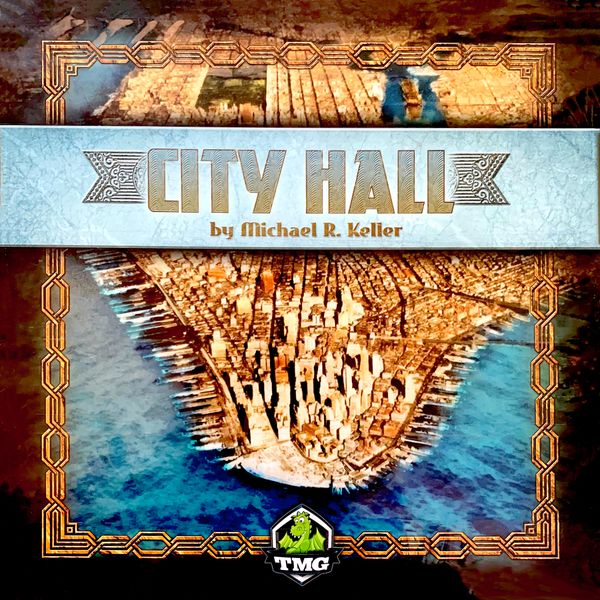City Hall (2014) Board Game
City Hall is a board game designed by Ariel Seoane and published by Tasty Minstrel Games in in 2014. The game is centered around city building and political themes, where players compete to become the Mayor by earning the most victory points through clever strategies and political maneuvering.
Game Components of City Hall
How To Setup City Hall
To set up, each player receives a supply of staffers, influence tokens, money, and building cards. The play order is randomly determined, with the last player in turn order receiving additional influence. Players then draft two starting land deeds, with each unchosen deed being “sweetened” with extra money. Each player places one of their building cards on one of their starting deeds and positions one staffer on the first space of both the population and approval tracks.
Gameplay Mechanics and Game Objective
Player Experience
City Hall is known for its tense and interactive gameplay. The auctions are the heart of the game, requiring players to weigh their decisions carefully about when to bid, when to feint, and how to manage their influence. This game is not a solitary affair; players must constantly engage with each other’s actions, making each turn filled with strategic considerations.
Pros
Cons
Personal Thoughts on City Hall
City Hall is for players who enjoy strategic, competitive games with deep role-selection and auction mechanics. It is ideal for those who appreciate the intricacies of managing resources and influence in a dynamic environment. However, its theme and visual appeal might not excite everyone, making it a harder sell for some gaming groups. If you’re looking for a game that challenges your strategic thinking and offers a lot of player interaction, City Hall could be an excellent addition to your collection.
We are supported by our audience. When you purchase through links on our site, we may earn an affiliate commission, at no extra cost for you. Learn more.

